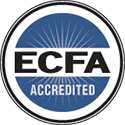Mom Needs a Nursing Home — How Will She Pay?

By Diana Frier
Your loved one’s health has suddenly or gradually declined. They need 24-hour medical attention, but not at a hospital. Their medical need is greater than what home health care can cover, so most often the best option is for them to stay in a skilled nursing facility. What happens next? And, how does it get paid for?
Anyone who has done their research on skilled nursing facilities knows that the cost per day is hundreds of dollars. Why so expensive? That question deserves its own article, but suffice it to say, most skilled nursing facilities are not getting rich; it takes a lot of money for good nursing homes to provide the care its residents need.
But, back to the question at hand: How does one pay for their loved one to stay in a skilled nursing facility? Here at Good Samaritan Center at Advent Christian Village, this question arises more any other. “Are we going to be able to afford long term care for my family member?”
There are four different ways of payment for a skilled nursing care facility: private pay, Medicare, Medicare Advantage, and Medicaid.
Private Pay
This is the simplest and most rare payment option. Monthly, the bills are sent to someone, such as a spouse or child, and that person writes a check for the amount and sends it in.
Medicare
After your loved one stays three nights or longer in a hospital, Medicare will cover 100% of their stay in a skilled nursing facility for up to 20 days. Beginning on the 21st day, Medicare will pay all but $161.00 a day for an additional 80 days (for a total of 100 days) as long as your loved one requires a “skilled level of care.” To require a skilled level of care, your loved one must need therapy five days a week, or require services that must be performed by a nurse, such as wound care or IV therapy.
If your loved one has a Medicare Supplement that has coverage for skilled nursing, the Supplement will pay the $161.00 a day that Medicare does not cover on the 21st through 100th day.
If, at any time during their stay, your loved one improves to the point of no longer requiring a skilled level of care, Medicare and the Supplement (if they have one) will stop coverage of their stay.
Medicare Advantage
The difference between standard Medicare and Medicare Advantage is that your loved one isn’t required to stay three nights in a hospital in order for their stay in a skilled nursing facility to be covered. Medicare Advantage does require authorization from the insurance company prior to issuing coverage, and your loved one will need to meet their “need criteria” for skilled nursing facility coverage.
Medicaid
The most common long-term solution (longer than 100 days) is Medicaid. A word of warning: If your loved one is already covered by Medicaid, or you hope to sign them up for Medicaid, you will need to do quite a bit of homework in order to find out if Medicaid will cover their stay in a skilled nursing facility. Medicaid is a federal program that is regulated by each state. If your loved one is applying for long-term care Medicaid in a skilled nursing facility, you need to check with the individual state agency that handles this for them. For instance, in Florida, you should contact Florida Department of Children and Families.
Because each state has different criteria, none are the same. However, the more information you can gather before starting will make the process easier. We suggest having this information handy (for both your loved one and their spouse):
- gross monthly incomes
- assets
- life insurance and what type, and if there is any cash value
- real property
- vehicles, boats or trailers
- any prepaid burials
- bank accounts (copy of several previous months’ bank statements)
- CDs
- annuities
- investment accounts (copy of several previous months’ statements)
- IRA or other accounts (copy of several previous months’ statements and last draw)
- stocks or bonds (copy of several previous months’ statements)
- Has any money or anything of value been given away in the last few years?
- Has anyone been added to the title of any asset in the last three years?
While this will add to your research time and increase your out-of-pocket expenses, I also advise you to see an elder law attorney for the state in which the facility is located to have all of your questions answered and especially if you feel your loved one may not qualify. They are the best source of knowledge and will be equipped to assist you.
Unfortunately, admitting a loved one into a skilled nursing facility can be a lot like buying a house. First, you have to do a lot of research. Then, there’s a lot of paperwork to fill out. You might need to make a “down payment.” And you’ll probably need a lawyer. But, the end result makes the trouble worthwhile when you see your loved one getting the care they need and deserve.
This article is intended as general advice and should not be viewed as legal or financial advice. For your individual situation, please consult an elder law attorney.
About the author: Diana Frier is the Admissions Coordinator at Good Samaritan Center, Advent Christian Village’s skilled nursing community. She has worked at ACV for over 30 years. She has experience working in financial planning and insurance. She and her husband live in Mayo, Florida, and have two grown sons.



